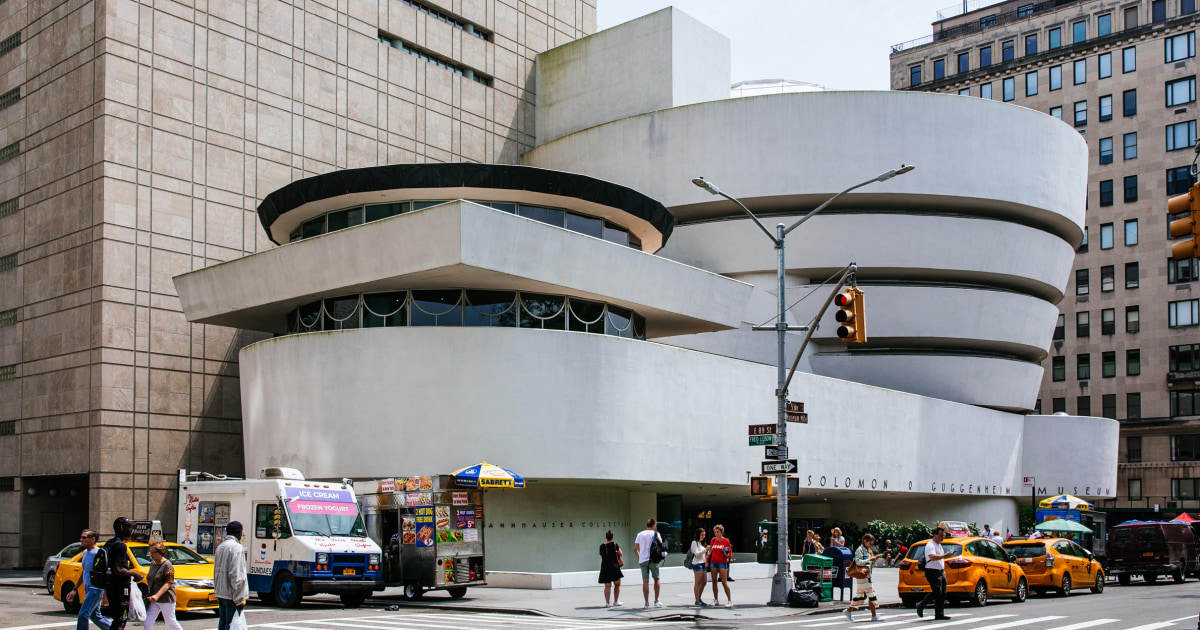
New York museums are now required to disclose the history of artworks that were stolen from Europeans, and primarily Jewish people, during the Nazi era, according to a new state law passed this month.
The law requires New York museums to display signage alongside works of art from before 1945 that are known to have been stolen or forcibly sold under Nazi rule.
The Germans looted 600,000 works of art during World War II, according to the text of the legislation and expert testimony.
New York state law currently requires works that were created before 1945 and changed ownership in Nazi Europe to be registered in the Art Loss Register, a private database of more than 700,000 works of lost, stolen and looted art, according to ARTnews.
Over the past few decades, New York museums have been at the center of debates about who has rightful ownership to artworks that changed hands during the Nazi era.
In 2018, the Guggenheim Museum returned a 1915 painting depicting a group of nude soldiers in a shower to the surviving family members of German Jewish art dealer Alfred Flechtheim, from whom the Nazis stole the painting, according to the New York Post.
The Metropolitan Museum of Art has also restituted various works from Nazi-era Europe over the years, including a snuffbox, two bronze medals and a plaquette to the heirs of a Munich-based art gallery that was extorted by the Nazi government, and a 16th-century silver stem cup to the heirs of a Jewish couple murdered in a concentration camp in 1944.
New York museums have also successfully fought to keep allegedly looted art from the Nazi era hanging on their walls.
Last year, an appeals court ruled that the Metropolitan Museum of Art can keep a $100 million Picasso painting that the family of the previous owner say was sold to fund the owner’s escape from Nazi Germany, according to Artnet.
The Met has also paid settlements to keep a painting by French impressionist Claude Monet, among other works.
Descendants of people who fled Nazi Germany have unsuccessfully tried to obtain paintings by the French Impressionist Auguste Renoir and German painter George Grosz from the Met and the Museum of Modern Art, respectively, that they say were forcibly sold and stolen, according to the New York Post.
And in 2007, the Museum of Modern Art and the Guggenheim filed a joint suit over two Picassos after the nephew of the previous owner alleged they were forcibly sold during the war. The suit was settled out of court and the museums retained the works, according to ARTnews.
The Met, the Whitney Museum of American Art, the Museum of Modern Art, the Guggenheim, and Brooklyn Museum have not disclosed how they plan to comply with the new law, according to local New York City news site Gothamist.
The Museum of Modern Art has approximately 800 works “that were or could have been in Continental Europe during the Nazi era,” according to its website, which also notes that museum researchers are continuing to research the ownership records for those artworks.
The Guggenheim notes that its research staff “initially identified approximately 275 works that are known to have, or might reasonably be thought to have, changed hands in continental Europe between 1932 and 1946,” adding that this research is ongoing.
The Brooklyn Museum and the Met also have ongoing research projects focused on identifying artworks that may have been looted or forcibly sold under Nazi rule, according to their websites.
The recently passed legislation was part of a package of bills Gov. Kathy Hochul signed into law this month aimed at increasing education about the Holocaust and honoring survivors.
The other two bills that became law as part of the package require the New York State Education Department to assess how schools are teaching the Holocaust and require the New York State Department of Financial Services to maintain and annually update a list of financial institutions that waive wire transfer or processing fees for Holocaust reparations payments to survivors, a third of whom live in poverty in the U.S., according to the legislation.
New York is home to nearly 40,000 Holocaust survivors, the governor’s office said in a press release earlier this year.
Source: | This article originally belongs to Nbcnews.com










